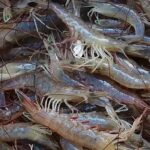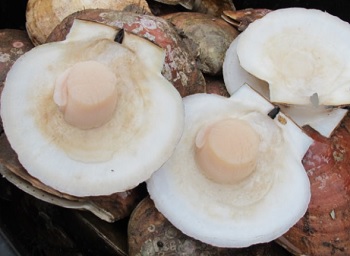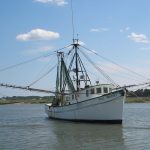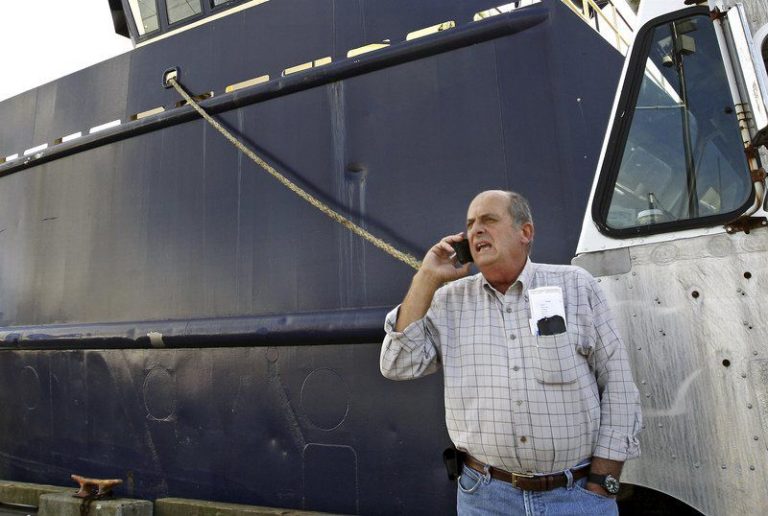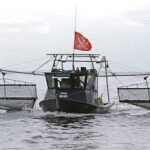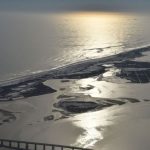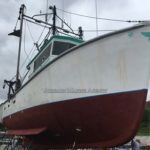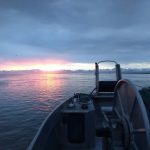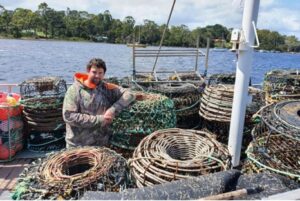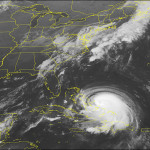Monthly Archives: February 2016
Innovation competition seeks solutions in Nova Scotia’s seafood industry
 Louisbourg Seafoods and Cape Breton University have teamed up to launch a competition that aims to crowdsource solutions to problems facing Nova Scotia’s billion-dollar fishing industry. The inaugural SEA++ competition, launched at CBU’s Verschuren Centre for Sustainability for Energy and the Environment last week, has placed more than $5,000 prize money up for grabs. Contestants have until Feb. 9 to register ideas capable of growing NS aquaculture, improving the efficiency, safety and sustainability of the province’s fixed and mobile fishing infrastructure; enhancing how well its fishing industry works at an enterprise level and also boosting its ability to develop and sell new products. Read the articles here 17:10
Louisbourg Seafoods and Cape Breton University have teamed up to launch a competition that aims to crowdsource solutions to problems facing Nova Scotia’s billion-dollar fishing industry. The inaugural SEA++ competition, launched at CBU’s Verschuren Centre for Sustainability for Energy and the Environment last week, has placed more than $5,000 prize money up for grabs. Contestants have until Feb. 9 to register ideas capable of growing NS aquaculture, improving the efficiency, safety and sustainability of the province’s fixed and mobile fishing infrastructure; enhancing how well its fishing industry works at an enterprise level and also boosting its ability to develop and sell new products. Read the articles here 17:10
Athearn Marine Agency Boat of the Week: 38′ H & H Tuna boat, 435HP 8 Cylinder CAT
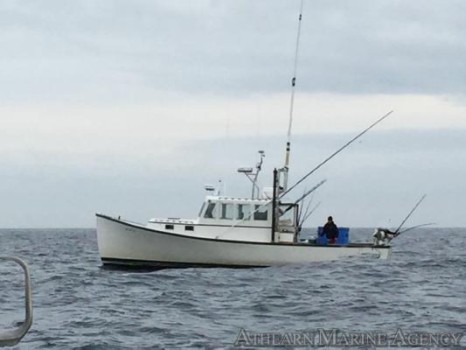 Specifications, information and 15 photo’s click here To see all the boats in this series, Click here 12:19
Specifications, information and 15 photo’s click here To see all the boats in this series, Click here 12:19
Emergency closure ordered for two Maine scallop fisheries
 Maine scallop fisheries in Cobscook Bay and Owls Head will face an emergency closure after Maine’s Department of Marine Resources (DMR) identified a 30% exceeded removal target. The closures will be effective on Saturday, Feb. 6, the DMR said. In addition, harvesting in the St. Croix River will be limited to one day per week for draggers on Wednesdays and one day per week for divers on Fridays during the months of February, March and April 2016. Based on direct input from the Marine Patrol and independent industry participants,,, Read the article here 11:29
Maine scallop fisheries in Cobscook Bay and Owls Head will face an emergency closure after Maine’s Department of Marine Resources (DMR) identified a 30% exceeded removal target. The closures will be effective on Saturday, Feb. 6, the DMR said. In addition, harvesting in the St. Croix River will be limited to one day per week for draggers on Wednesdays and one day per week for divers on Fridays during the months of February, March and April 2016. Based on direct input from the Marine Patrol and independent industry participants,,, Read the article here 11:29
Bristol Bay backlash after Walker taps Ruffner to replace Johnson on Fish Board
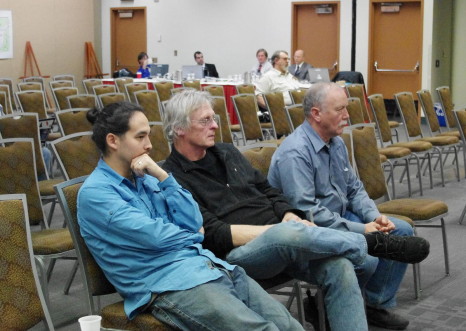 Governor Bill Walker announced five nominations to the state board of Fish and Game on Tuesday. On the list again this year for a Fish Board seat is Robert Ruffner of Kenai, who would replace Fritz Johnson, a commercial fisherman from Dillingham. If confirmed, it will be the first time the Fish Board would not have a member from Bristol Bay. When Governor Bill Walker announced five appointments to the state boards of fish and game on Feb. 2, he named a Soldotna scientist for the seat currently held by Dillingham’s Fritz Johnson. That was a surprise for many in the Bay,,, Audio, Read the rest here 11:02
Governor Bill Walker announced five nominations to the state board of Fish and Game on Tuesday. On the list again this year for a Fish Board seat is Robert Ruffner of Kenai, who would replace Fritz Johnson, a commercial fisherman from Dillingham. If confirmed, it will be the first time the Fish Board would not have a member from Bristol Bay. When Governor Bill Walker announced five appointments to the state boards of fish and game on Feb. 2, he named a Soldotna scientist for the seat currently held by Dillingham’s Fritz Johnson. That was a surprise for many in the Bay,,, Audio, Read the rest here 11:02
Lobster larvae settlement index shows highs and lows
 Scientists and researchers in both Canada and the U.S. are developing a lobster larvae settlement index that could predict “what’s coming down the pipe” for the commercial lobster fishery as far as stocks go. At the University of Maine, Richard Wahle, research associate professor of Marine science, has been studying the America lobster for close to 30 years, collaborating with researchers all along the eastern seaboard to “develop predictive tools for population trends through an understanding of larval transport, settlement and post-settlement processes.” Read the rest here 10:38
Scientists and researchers in both Canada and the U.S. are developing a lobster larvae settlement index that could predict “what’s coming down the pipe” for the commercial lobster fishery as far as stocks go. At the University of Maine, Richard Wahle, research associate professor of Marine science, has been studying the America lobster for close to 30 years, collaborating with researchers all along the eastern seaboard to “develop predictive tools for population trends through an understanding of larval transport, settlement and post-settlement processes.” Read the rest here 10:38
Legal dispute causing tension between fishing crews in Strait of Belle Isle
 A fisherman from Flower’s Cove says the legal dispute over who will benefit from a scallop compensation fund is causing tension in the Strait of Belle Isle area. “Me, I got no bad friends with anyone, but you knows it’s drawing some tension between families and crews,” said Jarvis Walsh. Walsh was in St. John’s to observe the trial in the Supreme Court of Newfoundland and Labrador. Read the rest here 10:26
A fisherman from Flower’s Cove says the legal dispute over who will benefit from a scallop compensation fund is causing tension in the Strait of Belle Isle area. “Me, I got no bad friends with anyone, but you knows it’s drawing some tension between families and crews,” said Jarvis Walsh. Walsh was in St. John’s to observe the trial in the Supreme Court of Newfoundland and Labrador. Read the rest here 10:26
Chinook Salmon: 9 Facts About Oregon’s Official State Fish
 The state of Oregon designated the Chinook or king salmon as its state fish in 1961. The newly minted state of Alaska then followed suit in 1962. Here are nine facts about the Chinook salmon that help to explain why it is so important to fishing in Oregon and elsewhere. 1. The Chinook is the biggest of all of the Pacific salmons, growing as long as 53 inches and weighing as much as 126 pounds,,, Read the rest here 09:54
The state of Oregon designated the Chinook or king salmon as its state fish in 1961. The newly minted state of Alaska then followed suit in 1962. Here are nine facts about the Chinook salmon that help to explain why it is so important to fishing in Oregon and elsewhere. 1. The Chinook is the biggest of all of the Pacific salmons, growing as long as 53 inches and weighing as much as 126 pounds,,, Read the rest here 09:54
Tanner crabbing underway as consolidation adds complications
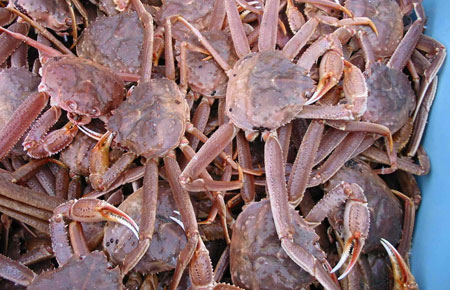 Fishing industry consolidation has complicated the lives of Tanner crab fishermen and processors, but it looks like they’ll still have access to the whole quota and won’t have to leave 10 percent in the water. Bering Sea commercial crab fisheries are underway, with fishermen catching Tanners at a faster pace than snow crab, according to Miranda Westphal, of the Alaska Department of Fish and Game in Unalaska. And Icicle Seafood’s withdrawal from the crab fishery shouldn’t leave any Tanners “stranded,” thanks to an emergency federal action. Read the post here 08:45
Fishing industry consolidation has complicated the lives of Tanner crab fishermen and processors, but it looks like they’ll still have access to the whole quota and won’t have to leave 10 percent in the water. Bering Sea commercial crab fisheries are underway, with fishermen catching Tanners at a faster pace than snow crab, according to Miranda Westphal, of the Alaska Department of Fish and Game in Unalaska. And Icicle Seafood’s withdrawal from the crab fishery shouldn’t leave any Tanners “stranded,” thanks to an emergency federal action. Read the post here 08:45
The port of Galilee/Point Judith has lost an iconic member, Jack Westcott
 Jack B. Westcott, 91, of Charlestown, passed away Monday. He was the husband of Elinor Pinkham and the late Lillian (Holmes) Westcott. He is survived by three sons, his daughter, and many grand, and great grand children. Born in Wakefield, he was a son of the late Charles and Ruth (Champlin) Westcott. Mr. Westcott was a Commercial Fisherman, who worked out of Pt Judith for many years. A celebration of his life will be held, Saturday, February 13 from 12 Noon – 3 pm at George’s of Galilee Restaurant, 250 Sand Hill Cove, Narragansett, RI. In lieu of flowers, family requests memorial donations to the Pt. Judith Fisherman’s Scholarship Fund, PO Box 386, Narragansett, RI 02882. obituary 08:00
Jack B. Westcott, 91, of Charlestown, passed away Monday. He was the husband of Elinor Pinkham and the late Lillian (Holmes) Westcott. He is survived by three sons, his daughter, and many grand, and great grand children. Born in Wakefield, he was a son of the late Charles and Ruth (Champlin) Westcott. Mr. Westcott was a Commercial Fisherman, who worked out of Pt Judith for many years. A celebration of his life will be held, Saturday, February 13 from 12 Noon – 3 pm at George’s of Galilee Restaurant, 250 Sand Hill Cove, Narragansett, RI. In lieu of flowers, family requests memorial donations to the Pt. Judith Fisherman’s Scholarship Fund, PO Box 386, Narragansett, RI 02882. obituary 08:00
Wednesday meeting to give update on Ventura Harbor closure

Regulators Postpone Plan to Try to Preserve Lobsters
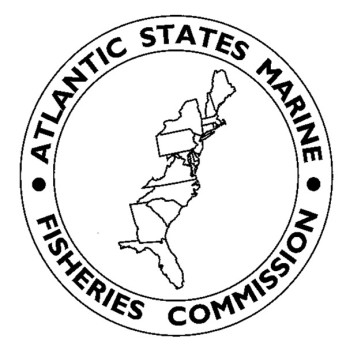 Interstate fishing regulators have decided to hold off on starting the process of crafting a plan to try to preserve the dwindling southern New England lobster stock. A board of the voted Tuesday to postpone authorizing a new management plan for the fishery. A plan could address issues such as trap reductions and closed seasons for lobster fishermen. Southern New England’s lobster fishery is a historic industry in decline. Scientists say the area’s lobster population has sunk to its lowest levels on record. Lobster supply to consumer remains strong because of heavy catch off Maine and Canada. The board decided to postpone the initiation of the plan to allow a technical committee to do more work. It could revisit the issue in May or August. Link 17:48
Interstate fishing regulators have decided to hold off on starting the process of crafting a plan to try to preserve the dwindling southern New England lobster stock. A board of the voted Tuesday to postpone authorizing a new management plan for the fishery. A plan could address issues such as trap reductions and closed seasons for lobster fishermen. Southern New England’s lobster fishery is a historic industry in decline. Scientists say the area’s lobster population has sunk to its lowest levels on record. Lobster supply to consumer remains strong because of heavy catch off Maine and Canada. The board decided to postpone the initiation of the plan to allow a technical committee to do more work. It could revisit the issue in May or August. Link 17:48
Environmentalists, Fishermen At Odds Over Turning Cashes Ledge Into National Monument
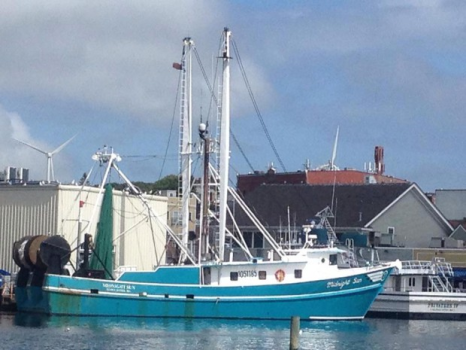 As some New England fishermen struggle under intense quota cuts, the industry is fearing another political move that could prove to have devastating consequences. There is an effort to designate Cashes Ledge — a historically important fishing area — as a national marine monument. This would require a presidential order and would effectively close the area to all commercial activity. About 80 miles off the coast of Cape Ann, a cold-water kelp forest grows from the tip of a ridge that rises from the ocean floor known as Cashes Ledge. Audio, Read the rest here 17:12
As some New England fishermen struggle under intense quota cuts, the industry is fearing another political move that could prove to have devastating consequences. There is an effort to designate Cashes Ledge — a historically important fishing area — as a national marine monument. This would require a presidential order and would effectively close the area to all commercial activity. About 80 miles off the coast of Cape Ann, a cold-water kelp forest grows from the tip of a ridge that rises from the ocean floor known as Cashes Ledge. Audio, Read the rest here 17:12
North Carolina Fisheries Association Weekly Update for Feb 1, 2016
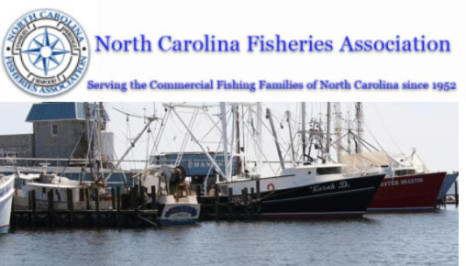 Click here to read the Weekly Update, to read all the updates, Click here 16:16
Click here to read the Weekly Update, to read all the updates, Click here 16:16
Editorial: Time to speak up for commercial fishing
 Last week included one of the signature events on the Pacific Northwest’s annual calendar: the setting of spring fishing seasons on the Columbia River. The forecast for the important spring Chinook run is about 300,000 to the river’s mouth, about 28 percent fewer than last year but more than the 10-year average of 285,000. Forecasts are one thing and reality quite another, but there is a good chance that fishermen and the businesses that rely on them will have a fun few weeks from March 1 to April 9. Read the rest here 15:17
Last week included one of the signature events on the Pacific Northwest’s annual calendar: the setting of spring fishing seasons on the Columbia River. The forecast for the important spring Chinook run is about 300,000 to the river’s mouth, about 28 percent fewer than last year but more than the 10-year average of 285,000. Forecasts are one thing and reality quite another, but there is a good chance that fishermen and the businesses that rely on them will have a fun few weeks from March 1 to April 9. Read the rest here 15:17
Non-EU Europe Fishing Fleets: Europe’s Profitable ‘Outsiders’
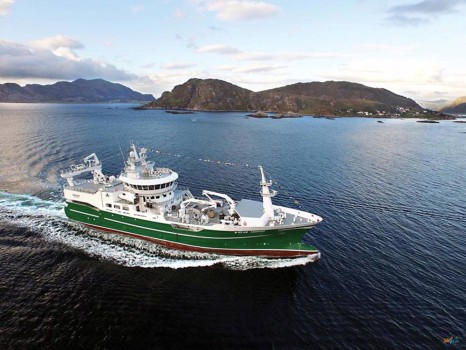 With three species of migrating cod to fish and new commercial species arriving as oceans warm, Norway is a fisheries Valhalla. Yet, recent boat sales suggest the Scandinavian country’s role is changing. Vessel orders and rules in Norway are propping up yards and designers on Europe’s fringes. Medium-sized hull orders for Romanian, Russian and Turkish boat builders are new, while large vessel orders for Denmark or Spain continue apace. Unconventional Icelandic designs, too, are gaining ground here as catches and profits soar. Read the article here 12:04
With three species of migrating cod to fish and new commercial species arriving as oceans warm, Norway is a fisheries Valhalla. Yet, recent boat sales suggest the Scandinavian country’s role is changing. Vessel orders and rules in Norway are propping up yards and designers on Europe’s fringes. Medium-sized hull orders for Romanian, Russian and Turkish boat builders are new, while large vessel orders for Denmark or Spain continue apace. Unconventional Icelandic designs, too, are gaining ground here as catches and profits soar. Read the article here 12:04
Moving Forward: Fishermen await trial on NOAA monitors mandate
 Local fisherman David Goethel said he hopes a court ruling comes soon to determine the legality of a new federal mandate, as he and other fishermen are fearful they will go under before the trial begins. Goethel said he may sell his fishing boat after this summer if the trial isn’t resolved by then. He filed the lawsuit causing the trial, challenging the National Oceanic and Atmospheric Administration’s plan to make fishermen pay for their own policing. He filed it in conjunction with a fishing sector based in Massachusetts. While Goethel said he might personally consider retirement this year, he still feels strongly about going forward with the trial to prevent a new precedent for the fishing industry. Read the article here 10:48
Local fisherman David Goethel said he hopes a court ruling comes soon to determine the legality of a new federal mandate, as he and other fishermen are fearful they will go under before the trial begins. Goethel said he may sell his fishing boat after this summer if the trial isn’t resolved by then. He filed the lawsuit causing the trial, challenging the National Oceanic and Atmospheric Administration’s plan to make fishermen pay for their own policing. He filed it in conjunction with a fishing sector based in Massachusetts. While Goethel said he might personally consider retirement this year, he still feels strongly about going forward with the trial to prevent a new precedent for the fishing industry. Read the article here 10:48
Environment: Fish gone foul – Male fish developing female sex organs
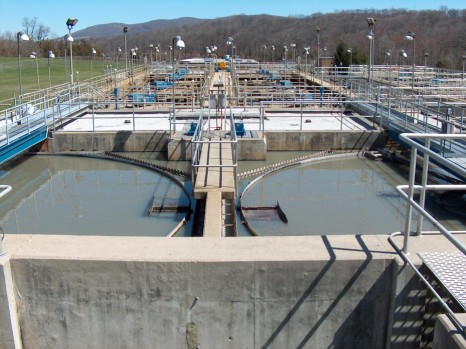 The Wallkill River in extreme northern New Jersey is one of the more picturesque locales in the state. So is the Great Swamp in Morris County, a 12-square-mile oasis amid suburbia that was preserved shortly after local activists and officials stopped a plan to build a major airport there about 50 years ago. The seemingly pristine quality of the river and swamp makes it hard to believe that some male fish in both places are developing female sex organs, perhaps because chemical contaminants are altering their hormone systems. The swamp is a national wildlife refuge and the river is part of another refuge. Read the article here 09:27
The Wallkill River in extreme northern New Jersey is one of the more picturesque locales in the state. So is the Great Swamp in Morris County, a 12-square-mile oasis amid suburbia that was preserved shortly after local activists and officials stopped a plan to build a major airport there about 50 years ago. The seemingly pristine quality of the river and swamp makes it hard to believe that some male fish in both places are developing female sex organs, perhaps because chemical contaminants are altering their hormone systems. The swamp is a national wildlife refuge and the river is part of another refuge. Read the article here 09:27
The sound of endangered salmon surviving
 Any day now, next time a storm sends a pulse of water down California’s Sacramento River, biologists at the Livingston Stone National Fish Hatchery will release this year’s batch of winter-run Chinook salmon. Of the 400,000 4-inch-long salmon smolts they release, 570 will be emitting a coded sound from a tiny electrical device implanted in their bellies. They’ll beep all the way down the river and, for those lucky enough to make it, out to sea. Winter-run Chinook salmon are critically endangered. They are particularly vulnerable in times of drought, when water levels are low and river temperatures high. With California now in the fourth year of a historic drought — and the state is still in a drought, despite short-term relief from recent storms — winter-run Chinook salmon are in an extremely perilous state. Read the article here 07:11
Any day now, next time a storm sends a pulse of water down California’s Sacramento River, biologists at the Livingston Stone National Fish Hatchery will release this year’s batch of winter-run Chinook salmon. Of the 400,000 4-inch-long salmon smolts they release, 570 will be emitting a coded sound from a tiny electrical device implanted in their bellies. They’ll beep all the way down the river and, for those lucky enough to make it, out to sea. Winter-run Chinook salmon are critically endangered. They are particularly vulnerable in times of drought, when water levels are low and river temperatures high. With California now in the fourth year of a historic drought — and the state is still in a drought, despite short-term relief from recent storms — winter-run Chinook salmon are in an extremely perilous state. Read the article here 07:11
Tyaskins man banned permanently from commercial fishing in Maryland
 Adam Rodney Antes, 33, of Tyaskin, was found guilty of taking oysters from protected waters over a two year period, over harvesting and harvesting undersized oysters, according to the Maryland Department of Natural Resources. He was assessed 60 points on his tidal fishing license, according to DNR, which is nearly double what is required to trigger the revocation hearing process. On Jan. 11, four days before he was given the revocation, Antes was charged with another eight counts of oyster poaching. Officers set up surveillance on the vessel, Kimberly Dawn, tied up near Bivalve Harbor in Wicomico County, after they acted on a tip. They saw piles of oysters on the boat’s deck, according to DNR. Read the rest here 16:27
Adam Rodney Antes, 33, of Tyaskin, was found guilty of taking oysters from protected waters over a two year period, over harvesting and harvesting undersized oysters, according to the Maryland Department of Natural Resources. He was assessed 60 points on his tidal fishing license, according to DNR, which is nearly double what is required to trigger the revocation hearing process. On Jan. 11, four days before he was given the revocation, Antes was charged with another eight counts of oyster poaching. Officers set up surveillance on the vessel, Kimberly Dawn, tied up near Bivalve Harbor in Wicomico County, after they acted on a tip. They saw piles of oysters on the boat’s deck, according to DNR. Read the rest here 16:27
Only 3 percent of juvenile salmon survived California drought in 2015
 Only 3 percent of the juveniles of an endangered salmon species survived the drought along the Sacramento River in 2015 despite extraordinary efforts by federal and state officials to save them, federal officials said Monday. It marked the second straight year that the vast majority of juvenile winter-run Chinook salmon were cooked to death on the Sacramento, according to data released by the National Marine Fisheries Service. In 2014, only 5 percent of the juveniles survived. Read the rest here 14:42
Only 3 percent of the juveniles of an endangered salmon species survived the drought along the Sacramento River in 2015 despite extraordinary efforts by federal and state officials to save them, federal officials said Monday. It marked the second straight year that the vast majority of juvenile winter-run Chinook salmon were cooked to death on the Sacramento, according to data released by the National Marine Fisheries Service. In 2014, only 5 percent of the juveniles survived. Read the rest here 14:42
Connecticut delegation wants state to have input on proposed fishing rules
The state’s congressional delegation has sent a letter to a congressional subcommittee requesting that 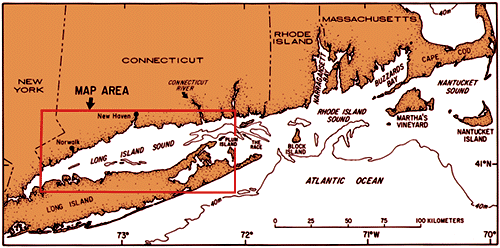 be allowed to testify on a proposed bill that would transfer 150 square miles of federal fishing grounds to the control of Rhode Island and New York. The legislation would move the exclusive economic zone (EEZ) in Long Island Sound to a new landward boundary between Montauk, N.Y., and Point Judith, R.I. New York Rep. Lee Zeldin introduced the bill which was aimed at striped bass management. The subcommittee is slated to hold a hearing on the bill Tuesday. Read the rest here 11:17
be allowed to testify on a proposed bill that would transfer 150 square miles of federal fishing grounds to the control of Rhode Island and New York. The legislation would move the exclusive economic zone (EEZ) in Long Island Sound to a new landward boundary between Montauk, N.Y., and Point Judith, R.I. New York Rep. Lee Zeldin introduced the bill which was aimed at striped bass management. The subcommittee is slated to hold a hearing on the bill Tuesday. Read the rest here 11:17
Maine Scallop Fishermen ticketed for illegal moorings
 Nine people were summoned recently for illegal boat moorings at the Edmunds Boat Launch in Cobscook Bay, the most productive scallop fishing area in the state. The mooring moratoriums, and the lack of space in Eastport, “led us to believe we would be the only game in town and therefore we would be overrun,” Edmunds Harbor Master Heron Weston said last week. As a result, the Washington County commissioners, acting as administrators for the unorganized territory, decided the state-owned property should join the list of other harbors with mooring moratoriums. Read the rest here 08:41
Nine people were summoned recently for illegal boat moorings at the Edmunds Boat Launch in Cobscook Bay, the most productive scallop fishing area in the state. The mooring moratoriums, and the lack of space in Eastport, “led us to believe we would be the only game in town and therefore we would be overrun,” Edmunds Harbor Master Heron Weston said last week. As a result, the Washington County commissioners, acting as administrators for the unorganized territory, decided the state-owned property should join the list of other harbors with mooring moratoriums. Read the rest here 08:41
A fishy business: Dramm Corp. turns fish scraps into organic fertilizer
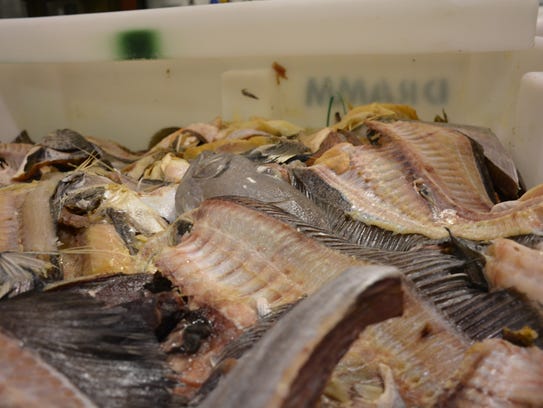
Jersey Shore Rally Urges Obama Admin to #KillTheDrill, #ProtectOurAtlantic
 U.S. Senators Bob Menendez and Cory Booker, and Congressman Frank Pallone (N.J.-06) today were joined by over 100 local leaders, environmental and tourism groups, Jersey Shore business owners and residents at a rally on the Asbury Park boardwalk to demand action to guard the Atlantic against offshore oil and gas exploration. The Obama Administration is currently planning to allow oil production off the coast of Virginia, the Carolinas and Georgia, putting New Jersey’s economy and shore communities at significant risk of a catastrophic oil spill. The federal Bureau of Ocean Energy Management (BOEM) is expected to release its revised plan in the coming weeks. Read the rest here 08:07
U.S. Senators Bob Menendez and Cory Booker, and Congressman Frank Pallone (N.J.-06) today were joined by over 100 local leaders, environmental and tourism groups, Jersey Shore business owners and residents at a rally on the Asbury Park boardwalk to demand action to guard the Atlantic against offshore oil and gas exploration. The Obama Administration is currently planning to allow oil production off the coast of Virginia, the Carolinas and Georgia, putting New Jersey’s economy and shore communities at significant risk of a catastrophic oil spill. The federal Bureau of Ocean Energy Management (BOEM) is expected to release its revised plan in the coming weeks. Read the rest here 08:07






 Recent media accounts report how sea lion pups are stranding on shore and dying in record numbers because there aren’t enough sardines and anchovies – sea lions’ favorite food – to support their growing population. For example, the Orange County Register, even after acknowledging the cyclical nature of the ocean and marine species, points to overfishing as the problem. (
Recent media accounts report how sea lion pups are stranding on shore and dying in record numbers because there aren’t enough sardines and anchovies – sea lions’ favorite food – to support their growing population. For example, the Orange County Register, even after acknowledging the cyclical nature of the ocean and marine species, points to overfishing as the problem. (


























